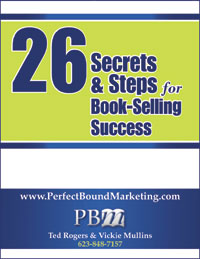Write On Target
After reading thousands of magazine articles and book proposals from writers who would like to get them published, I find the reason for rejection often boils down to one key mistake: the writer assumes that their writing is for everyone. They have no target audience so they do not hit anything.
To tackle this area of no target audience, first I want to address the writer trying to get published in the magazine market. All beginning writers should perfect their craft with short magazine articles. Every magazine has a target reader. The writer needs to determine who this publication is reaching. What is the age of their reader? What is the gender? What types of products and services do they purchase? Check the advertising rate cards for the publication because often this information is in this section of their website or printed literature. When you send in your article or query, make sure you are addressing the target reader.
Children’s writers often forget their target. The children’s market is extremely segmented and targeted with particular age groups. The gatekeepers, such as the editor or agent, wants to know you have that target firmly in your sights when you send in your work. If you aim for too large of an age range, don’t be surprised if your submission is instantly rejected.
For a nonfiction book, who will be your ideal reader? Is that target large enough and do they buy books? Make sure you approach publishers who can reach your target audience. Is there a secondary target reader? All too often writers tell me their book is for everyone. Editors and agents know that books have targeted audiences and you will increase your possibilities of acceptance if you have a target firmly in mind.
It is the same with fiction. What genre and target audience are you writing for and planning on them reading your book? If you aim at nothing, you will be sure to hit it. Be on target and have a target audience with your writing. If you have it in your mind from the beginning it will show in the words you produce. 
Here are two quick examples of books I’ve recently read with great target audiences Lela N. Buchanan wrote Finding Redemption in Every Day Life (Intermedia). With engaging and warm writing, Lela writes her personal experiences about the moments of failure in her own life and the lives of her immediate family members. When you fail, what turns around that failure into a moment of redemption or something God can use in your life for good? I was captivated with her stories and they kept me turning the pages. Lela wrote with a type of reader firmly in mind for this well-crafted book.
firmly in mind for this well-crafted book.
For fiction, Joel Rosenberg has long been a favorite author of mine for telling a contemporary story that appears to be ripped from the pages of the newspaper with vivid characters who are in fascinating difficulties. In The Twelfth Iman (Tyndale), Joel firmly targeted a reader who loves contemporary Middle East political action thrillers.
Keep your target reader in mind and it will make a huge difference in your writing.
Labels: Intermedia Publishing Group, Joel Rosenberg, Lela Buchanan, rejection, target audience
























